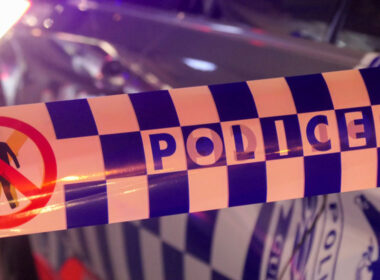I was of the view that this area had little attention but was having a harmful, traumatic impact on the clients I was seeing.
October heralds the beginning of Australia's spring/summer festival season, which also means that it’s a peak period for police presence at music festivals in NSW. A spate of media reports and public inquiries have revealed systemic abuse of power by NSW police in their conduct of strip searches, including at outdoor festivals from mid-2016.
According to a University of NSW (UNSW) report – Rethinking Strip Searches by NSW Police (2019), strip searches in NSW increased dramatically in the last decade. Strip searches were used 5483 times in the 12 months to 30 June 2018, an almost twentyfold increase in less than 12 years.
The legislation underpinning strip search powers in NSW is the Law Enforcement (Powers and Responsibilities) Act 2002 (NSW) or LEPRA.
In September 2002, then NSW Attorney General Bob Debus introduced LEPRA, which passed on November 21 then came into effect on December 1, 2005. The powers under LEPRA were designed to enable police officers to respond comprehensively to a drug crisis in NSW. In his second reading speech, Debus claimed that “the bill represents the outcome of the consolidation process envisaged by the Royal Commission into the NSW Police Service to help strike a proper balance between the need for effective law enforcement and the protection of individual rights”.
However, that balance is far from the reality in practice. Police are systematically strip searching young men and women at events and on the street to an extent, and in a fashion, that is concerning authorities, families, and youth advocates.
Samantha Lee is the Senior Solicitor within the Police Powers and Administrative Law area of Redfern Legal Centre (RLC). She spoke to LSJ about the prevalence of strip searches in NSW and the class action that RLC together with Slater & Gordon issued on 21 July 2022.
Increase in use of drug detection dogs leads to increased strip searches
In 2019, RLC commissioned UNSW to undertake research and report on strip searches in NSW. This report – Rethinking Strip Searches by NSW Police – confirmed what Lee had observed.
“Really, it was the introduction of drug dogs that UNSW found had a significant impact on the increased strip searches in NSW,” she says.
Section 146 of LEPRA (“If a police officer is authorised to search a person for the purpose of detecting a drug offence, the officer is entitled to use a dog for that purpose”) is regularly exploited, Lee explains.
The Rethinking Strip Searches by NSW Police report revealed that an indication from a Drug Detection Dog alone was being used to justify the use of strip searches, despite this practice not meeting the legal criteria for a strip search.
Case studies and reports indicated that police systematically escalate to a strip search immediately upon a positive indication from a dog, even after failing to find anything in a general search. In 2017, approximately 20 per cent of all strip searches resulted from a positive indication from a Drug Detection Dog despite NSW Police Special Operating Procedures that require police to have a reasonable suspicion based on more than just a positive indication from a dog before initiating a search.
This is not the only section of LEPRA being exploited by NSW police officers, Lee says.
Strip searches target youth as young as 10 with grievous effect
Section 33 of the LEPRA permits officers to strip search an individual either at a police station, a place of detention, or in the field when it’s suspected to be “necessary for the purposes of the search and that the seriousness and urgency of the circumstances” justify it. Sections 32 to 34A outline further protocols applicable to strip searches, such as individuals being given privacy and shielding from view during the search, searches being conducted by officers of the same sex, and no permissibility for touching or searching of body cavities.
 Samantha Lee, Redfern Legal Centre
Samantha Lee, Redfern Legal Centre
Lee says, “From 2019, through our casework at RLC, I had started to see a number of young women come into RLC after being strip searched at a music festival, and they described horrendous circumstances. Many of them were in tears while relating what had happened. That made me want to look further into the LEPRA legislation and I started to gather statistics from NSW Police, looked at the law, reviewed our casework, and I was of the view that this area had little attention but was having a harmful, traumatic impact on the clients I was seeing.”
One of the major concerns Lee has raised is the flaunting of child protection principles. Under LEPRA, children under 10 are not allowed to be strip searched (Section 34). Under Section 33(3), for those individuals aged 10 to 18, a parent, guardian or representative must be present for a search to happen. In their absence, someone other than a police officer must be present to represent the individual’s best interests.
Lee says, “In NSW, children as young as 10 can be legally strip searched without an adult or guardian present if police claim that the circumstances are to ensure the safety of the child or prevent destruction of evidence. That’s according to LEPRA Section 33(3A).”
She adds, “Through my casework, I’ve seen police use that clause to not contact a parent or guardian, and this was seen in the LECC reports too. That’s incredibly distressing to think of a child as young as 10 made to undress in front of a police officer in an environment like a tent or even on the street. We have examples of that in regional areas. For child protection principles not to come into play seems negligent.”
Recent LECC report finds problematic strip searches
Where individuals who have been subject to a strip search believe their rights have been breached before or during a strip search, they can make a complaint to the Law Enforcement Conduct Commission (LECC).
The LECC released the findings of its audit of strip-searches on September 18 this year. It revealed “low standards of record-keeping” in its analysis of 359 records, a sample taken from five music festivals between 2021 and 2022. Since 2021, over two thirds of NSW police strip-search records indicate that officers had failed to comply with protocol regarding people’s privacy and liberties.
Other findings were that 28 per cent of police officers had not undertaken the music festival training, and 47 per cent had not done so within the required time frame. Just over a quarter of strip search records (30 per cent) provided evidence towards the seriousness and urgency threshold that justifies a strip-search under the law. Of the reports analysed, merely 27 per cent provided documentation to indicate police followed the LEPRA rules for protecting privacy and dignity in strip-searches.
Since 2021, over two thirds of NSW police strip-search records indicate that officers had failed to comply with protocol regarding people’s privacy and liberties.
A NSW police spokesperson told The Guardian Australia that the force acknowledged the LECC report and had acted to “rectify the gaps in training and knowledge” identified by the report, which included “the introduction of a pre-event online education package, reissuing the music festivals guidelines to all officers in the field and instructing commanders to ‘remind’ officers to comply with mandatory training requirements”.
In March 2019, Strike Force Blackford was established by the NSW Police Professional Standards Committee as an internal investigative body into NSW Police strip search conduct. A LECC analysis of Strike Force Blackford’s own investigations resulted in a 2020 report that revealed the experiences of five young women who attended various music festivals in NSW in 2019. The report described “traumatic” and “degrading” conduct by officers, including a woman asked to remove her tampon during a search, and a young woman being laughed at by officers during a search. The report referred to “a lack of clarity of frontline officers regarding the lawfulness” of certain conduct during strip searches.
Festival attendees report traumatic experiences
“The case that set this issue off for me was a young woman who was 17 at the time of being strip searched,” says Lee, who was given permission by the young woman to share her story with LSJ. A year earlier, at the age of 16, the young woman had been sexually assaulted and reported that to police.
“She went to a music festival and a drug dog paid attention to her. She was removed from the queue, taken to a cubicle and told to remove all her clothes and put her hands on the table while a female officer inspected her body. They noticed she was wearing a tampon and asked her to take out the tampon. Nothing was found on her. Her ticket was taken from her, and she was told to go home. It took her some time to come to Redfern Legal Centre to seek advice. I liken it to taking instructions from someone who has been sexually assaulted.”
Lee adds that often young people don’t want to tell their family about their experience owing to shame that they might have been suspected of drug possession.
“She was in tears when she was telling me the story, she’s still traumatised by the experience. She has joined the class action for unlawful strip searches.”
A change in legislation is due
Lee says, “We’re advocating for children not to be strip searched without a court order, which is similar to what happens in the ACT. We’re also calling for the law to explicitly state that a strip search cannot be conducted on the basis of suspicion of minor drug possession. That would stop a whole number of strip searches.”
The alternative?
“A general search,” responds Lee. “The majority of minor drug possession can be found this way, or – when someone is surrounded by police – they admit to holding drugs. Strip searches happen when police don’t believe young people, or at least this is what I’ve heard from people I represent. It’s common for a general search of bags and outer clothing to come first, then a strip search where nothing is found.”
The problem has roots in how police perceive young people, Lee posits.
“It’s about body dignity and not punishing a young person even if they do have drugs on them. We advocate for a harm minimisation strategy rather than a punishment strategy.”
“It’s about body dignity and not punishing a young person even if they do have drugs on them. We advocate for a harm minimisation strategy rather than a punishment strategy.”
Class Action by NSW festival attendees still underway
On July 21, 2022, a Supreme Court of NSW class action proceeding against the State of NSW was issued by Redfern Legal Centre and Slater and Gordon Lawyers on behalf of plaintiff Raya Meredith and people unlawfully searched by NSW Police at all music festivals in NSW since 22 July 2016.
Meredith was 27 when she alleges that during a strip search, she was demanded to lift her breasts and show her genitals to a police officer at the 2018 Splendour in the Grass festival. The search found no illegal substances, and Meredith subsequently made a statement of claim alleging trespass (assault battery) and false imprisonment, and asking for damages, costs and interest on costs.
On October 5 this year, lawyer Rory Walsh explained to LSJ that the state of NSW (represented by Nicholas Scott Regener of Makinson d’Apice Lawyers) had applied for the case to be held as an individual case between Meredith and NSW, and the ruling had been reserved. Walsh confirmed that Slater Gordon would continue the case irrespective of whether it was an individual or a class action.
Sydney firm has seen “dozens of cases” in which strip searches are “akin to sexual assault”
Peter O’Brien is the founder and Principal Lawyer of O’Brien Criminal & Civil Solicitors in Sydney. He tells LSJ that his firm has handled dozens of cases of unlawful strip searches over the last two years.
“In every instance, we have been successful in securing a compensation payout for the client,” he says.
“In most cases, the result is by way of a notice of discontinuance and deeds of release including non disclosure agreements in relation to some of the payouts. This is the preferred method of settlement for NSW Police, although not the only method of settlement.”
O’Brien says that compensation is generally in the range of “tens of thousands rather than hundreds of thousands”, but each case varies depending on the circumstances.
“An unlawful strip search is at least an assault and if police have touched the body of the plaintiff, then an assault and battery. If a person is detained for the purpose of a strip search, if it’s unlawful, then the person has been unlawfully imprisoned. Each of those are actionable and compensable and the amount can depend on, for example, the length of unlawful imprisonment. If someone has never been in custody before nor adversely dealt with by police, or the strip search is conducted in a manner that breaches many safeguards rather than few they may be compensated higher amounts.”
He explains that general damages are sought for the immediate impact of the strip search, and aggravated damages relating to the conduct of both the defendant and police conduct.
“In general, a short detention and an unlawful strip search where police have not touched the plaintiff, plus legal costs will be in the tens of thousands. However, we’ve had matters where serious traumatic, psychological effects on a client have resulted in six figure settlement.”
In the cases we’ve seen, under-18s are not accompanied by an adult as is expected under the law, so they are totally unassisted during the strip search. In some cases, people are being told to bend, squat and manipulate views of their genitalia in some way through performing directed physical movement, which is akin to a sexual assault in my mind, and I struggle to see how that’s not the case.”
It’s advisable to comply, while knowing your rights
Lee says that if an individual has been asked to comply with a strip search by NSW police, “I suggest that they ask the officer to turn on their body worn footage and once that’s on, say that you don’t consent to the search. Ask the officer for their reasons for conducting the search, however – whatever the reason – unfortunately, standard operating procedures mean that police can still forcibly strip search.”
Lee adds that it is important to cooperate to avoid injury, and once the strip search has taken place, “write down what happened, the time it took place, where, what was said, and then come and see Redfern Legal or a free legal service to get advice.”
For those under 18, Lee advises, “The first thing to do is to tell police officer to call your parent, but if you don’t want a parent called, get them to call a friend or guardian. If police don’t abide by that wish, then ask them to turn on their body worn footage and say you don’t consent. If police do still want to conduct the strip search, then they can and the only recourse is after the event.”




